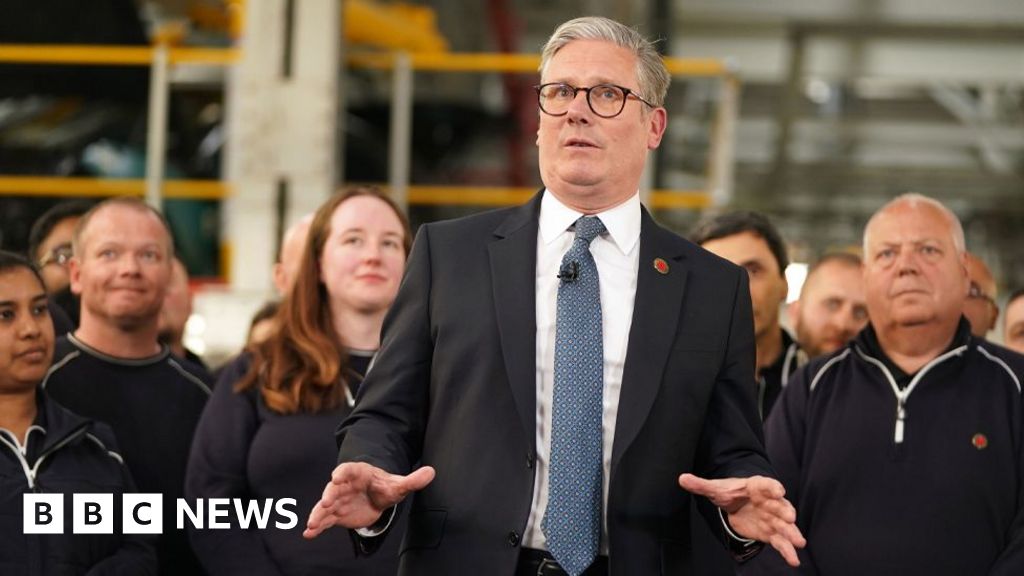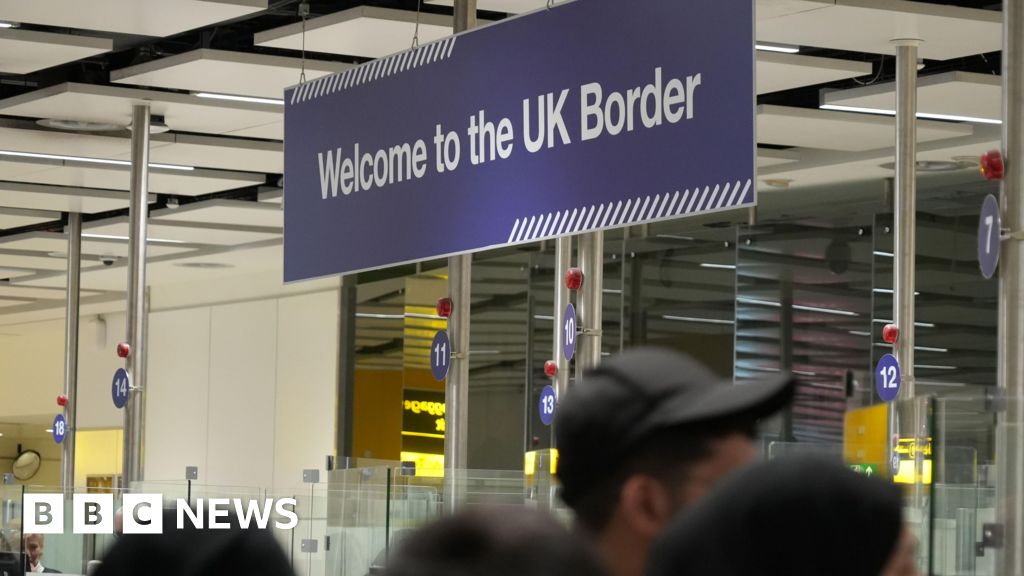ARTICLE AD BOX
Rishi Sunak and Sir Keir Starmer trade counter claims about who is to blame for schools affected by concrete issues
Rishi Sunak has batted away suggestions he was at fault for the concrete crisis in schools, in a Prime Minister's Questions dominated by the issue.
He faced Labour leader Sir Keir Starmer who likened the government to "cowboy builders" seeking to shift blame.
But Mr Sunak said his government acted "decisively" on the unsafe concrete and branded Sir Keir "Captain Hindsight".
The government has published a list of schools in England with reinforced autoclaved aerated concrete (RAAC).
A total of 147 education settings are included on the list, which sets out the RAAC mitigation measures schools have been forced to take.
The long-awaited list was published on Wednesday, after more than 100 schools were ordered to fully or partially shut buildings before the new academic year over RAAC concerns.
The government's record on dealing with the RAAC crisis was the main focus of PMQs, the first such session since MPs returned from their summer break.
Sir Keir read out the names of schools earmarked for repairs in 2010 under a Labour scheme, but which remain on the government's list of RAAC-exposed sites.
He quoted Gareth Davies, the head of spending watchdog the National Audit Office (NAO), who accused the government of a "sticking plaster approach" to school maintenance.
Sir Keir asked, if Mr Sunak was not to blame, "why does everyone else say it's his fault?".
Mr Sunak said he would "make no apology for acting decisively" since new information about RAAC came to light and insisted the government was "everything it can to fix this quickly".
He said the RAAC situation in schools had "evolved over time" and argued "it's something successive governments have dealt with".
Schools concrete crisis
Problems with the material have been known about for many years, but only came to wider attention following the collapse of a primary school's flat roof in 2018.
The incident prompted warnings from both the Local Government Association and Department for Education. Organisations responsible for school buildings were told to take steps to confirm the safety of their construction.
RAAC was used in various types of building between the 1950s and 1990s, but the material, a cheaper alternative to standard concrete, has a lifespan of around 30 years.
Although concerns about the material have been around for a while, the recent announcement about schools has sparked a political wrangle about previous levels of investment for repairs.
Since the announcement, Labour has increasingly sought to put Mr Sunak's record in the spotlight by questioning funding decisions he made when he was chancellor in Boris Johnson's government.
At PMQs, Sir Keir suggested the crisis was "the inevitable result of 13 years of cutting corners, botched jobs, sticking-plaster politics".
The Labour leader said: "It's the sort of thing you expect from cowboy builders saying that everyone else is wrong, everyone else is to blame, protesting that they've done an effin' good job even as the ceiling falls in.
"The difference is that in this case, the cowboys are running the country."
Hitting back, Mr Sunak said: "This is exactly the kind of political opportunity that we've come to expect from Captain Hindsight over here.
"Before today, he's never once raised this issue with me, across this dispatch box."
That point was contested by Sir Keir, who said Labour MPs had asked many parliamentary questions about the issue.
Sir Keir said schools now found to have RAAC which would have been replaced under Labour's Building Schools for the Future (BSF) programme, started when the party was in government.
But Mr Sunak said the BSF scheme, scrapped by the coalition government, would have been "time-consuming and expensive, just like the Labour Party".

 1 year ago
55
1 year ago
55








 English (US) ·
English (US) ·